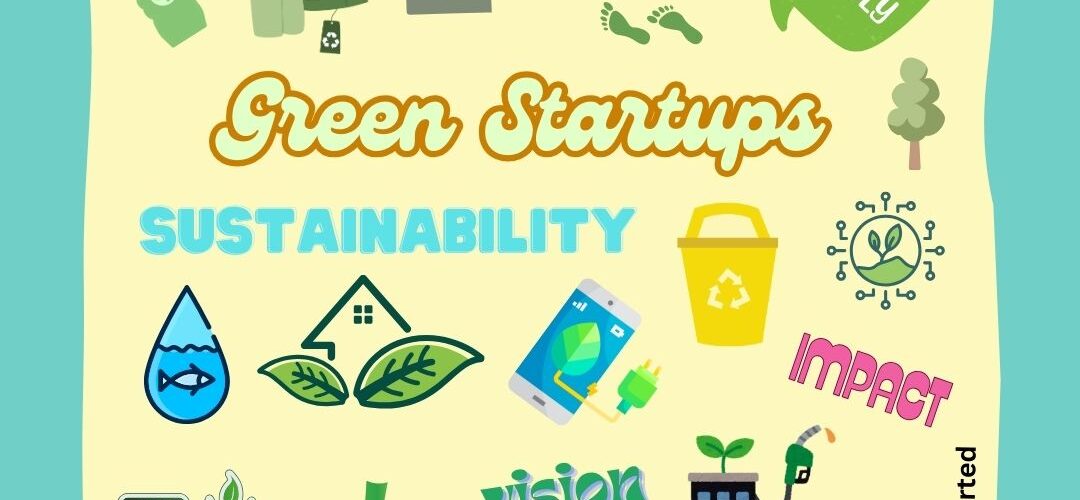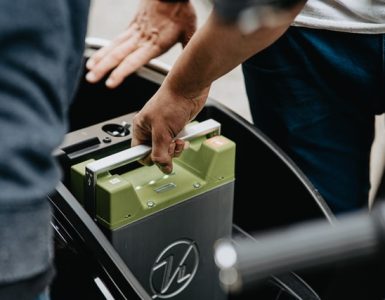As we close 2024, it is time to bring our fourth edition of 11 Indian Green Startups trying to improve our Planet.
After two years of funding winter with investments into Indian startups plummeting from $40 billion to $11 billion, we saw a renewed interest this year. The climate-related companies in India are not the ones to be left behind, with investments pouring in and multiple successful IPOs and pre-IPO rounds.
Ola Electric became the first Indian pure-play EV startup to go public. At the same time, its competitor Ather Energy, which was part of our 2021 list, plans to make its IPO soon.
Not just that, renewable companies like Waarree Energies, ACME Solar Holding, Enviro Infra Engineers and NTPC Green Energy IPOs delivered substantial returns to investors setting the stage for India’s climate startup ecosystem.
Many of the green startups we have listed in our previous editions continue to sparkle – a fresh round of funding was raised by solar rooftop companies ZunRoof (2021) and Solar Square (2022), Electric Cabs company BlueSmart (2021) expanded to Bengaluru and Dubai, Euler Motor (2022) launched its first four-wheeler EV, Pixxel (2023) won the largest supplier deal by an Indian company from NASA, etc.
The achievements of green startups in India underscore their commitment to creating products and services that reduce carbon emissions, mitigate environmental damage and help to build a sustainable future.
Our endeavour to share the annual list is to highlight the successes of the Indian climate startups and acknowledge their contribution to solving domestic climate challenges and taking it to the world.
Let us look at 11 Indian green startups working for the environment and sustainability and have fantastic potential in the future.
AgriVijay
Founders: Vimal Panjwani and Shobha Chanchlani
Pune-based AgriVijay is India’s first marketplace of renewable energy equipment for farmers and agricultural use.
Farmers can buy more than 200 kinds of renewable energy agri equipment including solar water pumps, solar inverters, solar cold storage, solar dryers, solar water heaters, pump controllers, solar lights, electric tractors, electric two-wheelers, etc.
Apart from offering convenience, access, and knowledge of renewable energy products, AgriVijay also offers services like insurance and financing. Further, through these products, farmers can increase their incomes, and savings and reduce dependency on fossil fuels.
The company follows an omnichannel strategy, where farmers can buy products from WhatsApp chatbot, call centres in the local languages, local sales teams, and offline renewable energy stores.
Launched in June 2020, they have over 100 stores across Rajasthan, Maharashtra, Telangana, Uttar Pradesh, and Gujarat.
At the recent RE-INVEST 2024 summit, the company signed a MoU with Next2Sun Germany and Wattkraft India to introduce innovative vertical solar farms in India which will ensure energy generation from both sides of the solar panel, leaving more land available for farmers to grow crops.
As solar energy is increasingly becoming mainstream in agricultural activities due to cost feasibility, power savings and economic viability, AgriVijay offers convenience and access to the farming community.
Bambrew
Founder: Vaibhav Anant
Bengaluru-based Bambrew is a sustainable packaging company that produces several plastic-free products like bags, boxes, paper tapes, etc. The company makes packaging products using plant-based ingredients and renewable materials like bamboo pulp.
Starting in 2018, Bambrew products have been adopted by many domestic and international businesses across several industries like e-commerce, FMCG, food & beverage, retail, and manufacturing. The firm notable clients include Amazon, Flipkart, Unilever, ITC Limited, Asian Paints, Nykaa, and Bata.
The company recently launched a new product, LaundriX, a fully compostable laundry bag for the hotel and hospitality industry.
In March this year, it raised ~$7 million (Rs. 60 crores) in a Series A funding round, comprising equity and debt, led by prominent investor Blume Ventures with participation from Blue Ashva Capital, Mumbai Angels, and Indus Capital.
In April 2024, Bambrew won Zomato’s Packathon Challenge, a competition in collaboration with Startup India to encourage innovation in sustainable packaging for food delivery orders. Bambrew won this unique competition where over 85 startups from across the country showcased their sustainable packaging solutions.
With companies prioritizing environmental responsibility, consumers becoming eco-conscious, and governments imposing policies like Extended Producer Responsibility, the demand for sustainable packaging is steadily rising, providing Bambrew with a huge market opportunity.
BiofuelCircle
Founders: Suhas Baxi and Ashwin Save
Pune-based BiofuelCircle is a digital marketplace that offers an end-to-end solution to meet the demand for biomass and biofuels.
The company connects biomass suppliers like farmers with bioengineering companies and biomass processors. The manufacturers get the necessary resources to make the biofuel and farmers are incentivised to sell their agricultural waste, typically burnt by them causing pollution.
The prices are based on the agricultural waste’s calorific (fuel) value and its proximity to the point of consumption. Groundnut shells with a higher calorific value will fetch a better value than a lower calorific biomass product like rice husk. The company deals with more than 50 agricultural residues that can be converted into biofuels.
BiofuelCircle was set up in 2020 and has expanded its operations to multiple Indian states like Maharashtra, Gujarat, Uttar Pradesh, Punjab, and Tamil Nadu. The digital platform enables buyers and sellers to connect easily, publish their requirements, and get the best deals.
From blending ethanol with petrol to using biomass in power generation, India has taken rapid strides in biofuel space in the last few years as it offers a reliable alternative to reduce the country’s dependency on imported fossil fuels.
Another advantage of biofuels compared to fossil fuels is that they produce fewer greenhouse gas (GHG) emissions during combustion, contributing to a decreased overall carbon footprint. Further, it helps to tackle the issue of crop stubble burning, which causes Delhi’s air pollution.
To ensure that a consistent supply of raw materials and biomass is made available to biofuel manufacturers, companies like BiofuelCircle will play a major role in bridging the supply chain.
BioPrime
Founders: Renuka Diwan, Shekhar Bhosale and Amit Shinde
Pune-based BioPrime is an agri-biotech company that develops bio-molecules to help farmers mitigate the risk of damages from climate change like extreme temperatures, excessive rainfall and drought.
Apart from mitigating the impact of climate change, BioPrime products help preserve soil health, enhance yield, and improve farmers’ income.
BioPrime products are made with plant-based ingredients and botanical extracts based on their patented technology that aids in developing biomolecules for physiology modulation. Thus providing an eco-friendly option for the farmers to reduce their dependence on chemical fertilisers and pesticides.
Starting in 2016, the company’s products are used domestically and internationally for multiple crops like tomatoes, potatoes, cotton, bananas, and rice, to name a few.
In October 2024, the company raised $6 million in a Series A funding round led by Edaphon with the participation of existing investors Omnivore and Inflexor. The investments will help BioPrime expand into North America, Brazil and Southeast Asia.
There is an increased need for climate-proofing agriculture worldwide, BioPrime is an example of how biotechnology can redefine farming practices with sustainability as the core.
Dharaksha Ecosolution
Founders: Arpit Dhupar and Anand Bodh

Delhi-based Dharaksha Ecosolution is a biotech sustainable packaging company that makes its products using agricultural waste.
Packaging solutions developed by the company solve the issue of crop stubble burning by incentivizing the farmers to sell their agri-waste and provide eco-friendly alternatives to fossil-fuel-based plastic and thermacol containers.
The biodegradable packaging solution leverages the properties of mycelium (fungi and mushrooms) combined with agricultural waste.
Founded in 2020, the company provide sustainable packaging for food, electronics, and e-commerce products. In September 2024, it raised Rs. 24.8 crores in seed funding investment, led by Avaana Capital.
In early 2024, Dharaksha Ecosolution appeared on Shark Tank India Season 3 and was part of our annual list of the show’s environment-friendly startups, it got a unique deal where all-sharks Aman Gupta, Vineeta Singh, Anupam Mittal, Peyush Bansal, and Ritesh Agarwal decided to invest Rs. 1250 for 1% equity and 100 hours of their time.
As the world and India strive to combat plastic pollution, Dharaksha Ecosolutions can play an important part in disrupting the packaging industry.
In our conversation with Arpit Dhupar, co-founder of Dharaksha Ecosolutions, when we asked about the product, this is what he had to say –
Our material is significantly better than thermocol in many aspects – cushioning capabilities, looks, texture, and surface finish and it is completely biodegradable. There is no raisins, chemical, binders, or colors involved in the manufacturing of the material. You can easily dump it as part of your kitchen waste and it will decompose in 60 days. At this stage, we feel we can disrupt the problem of plastic pollution and simultaneously solve the problem of crop stubble waste burning.
Freyr Energy
Founders: Radhika Choudary and Saurabh Marda
Hyderabad-based Freyr Energy is a tech-enabled company that offers rooftop solar solutions to residential, commercial and industrial energy consumers.
The company’s digital platform has features that allow consumers to understand their solarisation potential, know associated savings, evaluate pre-screened solar installers, explore financing options, and avail after-installation support.
The online system also enables users to track their solar energy production and savings through real-time analytics and visualizations. In addition, solar customers can also track their carbon footprint.
Founded in 2014, Freyr Energy has operations in multiple Indian cities in states like Telangana, Andhra Pradesh, Uttar Pradesh, Madhya Pradesh, Maharashtra, and, Kerala.
Late last year, Freyr Energy raised $7 million (Rs 58 crore) in a Series B round led by EDFI ElectriFI, an EU-funded impact investment facility. This year, the company opened multiple Solar Experience Centres to help people understand solar energy through physical touch and feel.
Due to the benefits rooftop solar offers, it has found traction in Indian households, residents and commercial establishments.
Additionally, the cost of solar in India has reached historic lows today, plus there is an increased government focus, through schemes like ‘PM Surya Ghar: Muft Bijli Yojana‘, the world’s largest domestic rooftop solar initiative. Launched in February 2024, this groundbreaking initiative has set a target to enable solar power to ten million households by 2027, which makes Freyr Energy a major player in the market.
LivNSense Technologies
Founders: Avnish Kumar and Priyanka Kumar
Bengaluru-based LivNSense is a B2B climate tech startup that leverages new-age technologies to assist heavy industries in reducing their greenhouse gas (GHG) emissions.
Founded in 2018 by the husband and wife duo, LivNSense uses artificial intelligence (AI), the Internet of Things (IoT), and digital twin technology to enable businesses in decarbonisation efforts and deliver 20% to 25% GHG intensity reductions.
Their tech-enabled platform uses technologies for real-time environmental data processing, predictive analytics, simulating operational changes and offering comprehensive integration across process value chains in sectors like cement, infrastructure, metals, and petrochemical industries.
In January 2024, the company raised $2.75 million in pre-series A funding round from Pavestone Technology Fund. The company has completed over 50 projects in India, the United States, Europe, Japan and Korea.
As hard-to-abate industries and businesses worldwide embrace technology to reduce their carbon footprint and fulfil their ESG goals, LivNSense can contribute to their environmental goals and deliver tangible economic value.
Lohum
Founder: Rajat Verma
Noida-based Lohum is a clean-tech company that specialises in lithium-ion (Li-ion) battery pack manufacturing and battery materials recycling.
The company leverages its processes to extract battery metals cobalt, lithium, nickel, and chemicals from used batteries, which are then repurposed to make new batteries thus lowering battery costs, reducing reliance on mining, and promoting circular economy.
The battery materials can be recycled and reused endlessly, if the un-recycled batteries end up in the waste after their first life, they can pose a severe environmental issue like polluting the surrounding land, water, and air if burnt.
Lohum’s repurposed lithium batteries can be used in three-wheelers, two-wheelers, and for stationary storage like in the case of rooftop solar energy in residences and commercial establishments.
Founded in 2018, Lohum has operations in India and countries in Asia, North America, Africa and, Europe.
Earlier this year, it signed a Joint Venture with two US-based companies, ReElement Technologies and Electrified Materials Corporation to establish the United States’ first fully integrated critical minerals and battery lifecycle management facility with an initial investment of $30 Million.
In March 2024, the company raised $54 Million (Rs. 450 crores) in series B funding from Singularity Growth, Baring Private Equity, Cactus Venture Partners and Venture East, among others.
With the growing demand for batteries in the mobility sector and stationary energy storage systems worldwide, Lohum will be a key enabler from India. Further, given India’s EV transformation and government support, it presents a huge opportunity for battery making and recycling.
Magenta
Founder: Maxson Lewis and Darryl Dias
Navi Mumbai-based Magenta is an electric mobility firm providing delivery logistics services primarily through its three- and four-wheel electric vehicles.
The company has an IoT-enabled fleet management platform that helps Magenta’s clients track and geo-fence vehicles, send overspeed alerts and monitor drivers’ performance.
The EV logistic company partners with Euler Motors, a Delhi-based electric vehicle company, which we recognized in the 2022 Green Startups list, to deliver electric vehicles. It also gets its EVs from India’s large automobile manufacturers Ashok Leyland and Tata Motors.
Starting in 2018, Magenta has been working with leading Indian companies like Flipkart, BigBasket, Amazon, Porter, Delhivery, and D-Mart across sectors like e-commerce, courier, and grocery delivery.
It is operational in multiple Indian states like Karnataka, Delhi, Maharashtra, Uttar Pradesh, and NCR. Magenta has established more than 100 charging depots across its operational cities to support the fleet’s long intercity and interstate journeys.
Recently it was granted a patent for its Plug-and-Play EV charging system that requires minimal installation, allowing for convenient charging of multiple electric vehicles simultaneously.
In September 2024, the Indian government announced the PM E-Drive scheme to promote the electrification of commercial vehicles including trucks and 3-wheelers, which will further boost Magenta’s expansion in India’s logistics market.
Solinas
Founders: Divanshu Kumar and Moinak Banerjee
Chennai-based Solinas is an end-to-end climate-tech company that addresses several issues in the water and sanitation sector.
The company’s Al-powered cleaning robots solve problems like water contamination, leakages, and blockages, thereby providing pipeline maintenance and eliminating manual scavenging.
Solinas has developed three products, Endobot, for pipeline inspections to detect leakages and contamination, Homosep, to clean manholes and septic tanks, and Swasth Al, which maps manholes and underground networks of pipelines and septic tanks.
Incubated in IIT Madras and founded in 2018, Solinas has deployed its solutions in over 15 cities in several Indian states and is also exploring markets in the Middle East and Southeast Asia.
Solinas was one of the environment-friendly startups that appeared on Shark Tank India Season 2 where it got a deal for Rs. 90 Lakhs for 3% Equity from Anupam Mittal and Peyush Bansal. Following its Shark Tank success, in May 2024, the company raised funds from the Neev II Fund and Rainmatter Capital.
Manual scavenging is prevalent in many underdeveloped and developing countries, including India. The manual method of cleaning manholes is not only dehumanizing but also causes deaths and serious health issues for the people involved. Though India officially banned manual scavenging in 2013, it is still employed in large parts of India due to various factors.
Further, water supply and sewage systems often face issues like leakages and contamination, making Solinas tech-enabled solutions critical for the sanitation industry.
Varaha
Founders: Madhur Jain, Ankita Garg and Vishal Kuchanur
Gurugram-based Varaha is a climate-tech platform that offers solutions to businesses to offset their carbon footprint by purchasing carbon credits.
The startup through its partners works with smallholder farmers to help them follow sustainable farming practices like regenerative agriculture, afforestation, etc. These methods help farmers enhance their productivity, boost crop yields, improve climate adaptation and result in carbon credits.
The emission reduction is measured using remote sensing and machine learning methods. Once the emissions are quantified into carbon credits, they are sold to businesses looking to offset their emissions. The income is shared between farmers who get 60% to 65% of the sales value, Varaha takes 20% to 25%, and partners take the balance 10% to 15%.
Varaha is active in multiple Indian states and neighbouring countries like Bangladesh and Nepal and is set to increase its geographic presence in Southeast Asia and Sub-Saharan Africa.
Varaha started in 2021 and was incorporated in February 2022. Since then, the company has worked with thousands of farmers and onboarded significant partners like Coca-Cola, IIT Kharagpur, The Nature Conservancy, and Rippleworks.
In February 2024, Varaha raised $8.7 million in a Series A funding round led by RTP Global, with support from Omnivore, Orios, and Norinchukin Bank. Then more recently, it made waves when the company’s CEO and Co-Founder, Madhur Jain, was named in the 2024 TIME 100 Climate List.
In November 2024, it launched India’s first carbon dioxide removal (CDR) credits for industrial biochar through a Finland-based leading platform for carbon crediting, Puro Earth.
According to Morgan Stanley, the voluntary carbon offset market is expected to grow to about $100 billion in 2030 and $250 billion by 2050 from $2 billion in 2020, this Indian carbon credit startup is sure to play a big role.
Wrapping Up
Climate change is one of the biggest challenges faced by humanity, the green startups in India are playing a vital role in solving these problems not just in the country but also in the world. They are showing us that anyone can be part of the climate solution.
Selection Methodology
The thought process that went behind the selection of these 11 Green Startups
As you can imagine, selecting 11 Indian Green Startups working for the climate is extremely challenging. The scale at which Indian entrepreneurs have responded to the global climate crisis is extraordinary, and the sheer number of environmental startups in the field makes it challenging to pick 11 of them.
The main criteria was to make the list exhaustive and cover startups (started after 2014) from various sectors.
Like we do every year, the aim was not to populate the list with startups from one sector. As everyone knows, sustainable mobility is one sector that has emerged as the key driver for our fight against climate change. That means the number of EV-related startups is also high. This is true not just in India but across the globe. In addition, the funding requirement for EV companies is also higher than a few other green companies, which makes them grab more news headlines. To counter this, we picked only 1 EV startup.
Similarly for the Solar Energy and Waste Management sector, we picked one.
We spent weeks analysing these green startups, looking at all the significant publically available accomplishments, like business growth, funding, awards, and long-term business potential in addressing environmental challenges.






Add comment